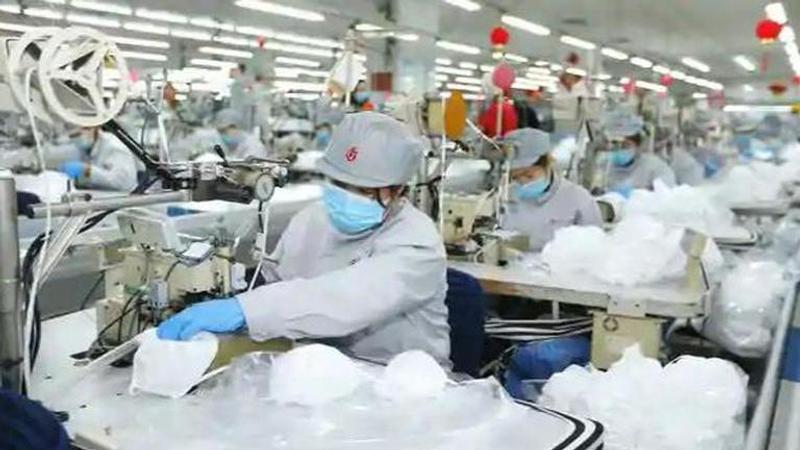Published 23:33 IST, April 26th 2020
DST allows Organic-Inorganic Nanocoatings for disposable masks made by Bengaluru scientist
Govt has approved support for large scale production of organic-inorganic hybrid nanocoatings for disposable face masks developed by a Bengaluru scientist

Advertisement
The Department of Science and Technology (DST) has approved support for large scale production of organic-inorganic hybrid nanocoatings for disposable face masks developed by a scientist at a Bengaluru institute under the DST Nano Mission. This comes amid heightened demand for re-usable masks in the wake of the COVID-19 pandemic.
Dr. Viswanatha R from Jyothy Institute of Technology intends to make use of the sol-gel nanotechnology to develop a functionalized organic-inorganic hybrid nanocoating based on silica nanoparticles coupled with a polymer matrix that is hydrophobic and disinfects SARS-CoV-2, the virus that causes the COVID-19 disease, that comes in contact with the surface of the mask.
The doctor will be tuning face masks with the developed nanocoating and demonstrate their viral disinfection ability, after which a plan of action will be prepared for the transfer of technology to companies for mass production.
There are several types of masks available in the market, but the most sought after is the N95 masks which are capable of filtering out all types of particles, including viruses and bacteria. The government has repeatedly advised people to wear a mask every time they step outside their homes as a precautionary measure against the highly contagious COVID-19.
The issue with inexpensive disposable masks
However, N95 masks are expensive and in short supply. On the other hand, inexpensive disposable masks have several limitations. They often get wet through salivary droplets, body fluids, and sweat. The wet masks attract microorganisms and act as a breeding ground for those organisms to multiply in number, due to which the person wearing it gets easily infected. Being disposable, these medical masks, when discarded, generate medical waste.
Moreover, the wearer of the mask is prone to touch the surface of the mask frequently to adjust his mask or to scratch the itch. Due to this, the mask gets contaminated. These aspects have created a pressing need for innovative solutions that can mitigate the existing concerns of disposable medical masks.
Solution lies in innovation
Nanocoatings could address this problem by offering a hydrophobic coating on the surface of the masks, preventing it from wetting, and will disinfect the virus/bacteria that may come in contact with the nanocoated surface. Functionalization of nanoparticles using the sol-gel technology by the researchers will make the nanocoating hydrophobic, which effectively repels water/moisture from the surface of the mask.
Further, the addition of a suitable polymer will increase the virucidal properties of the hydrophobic nanocoating. Therefore, by using sol-gel technology, a hybrid organic-inorganic silica-based nanocoating coupled with a proprietary polymer will be developed that will make the masks reusable and non-toxic. The nanocoating will be easily scalable, safe, and economical while being highly effective against COVID-19.
"Anti-microbial and anti-viral water repellent masks have a niche purpose where there is an overload of wet infected fluids or where frequent touching and adjusting of masks may happen. There are now several types of such coatings are being pursued which may be of value if they are safe, do not compromise the ease of breathing and do not add substantially to the cost," said Professor Ashutosh Sharma, Secretary, DST.
(With agency inputs) (AP Photo for representation)
23:33 IST, April 26th 2020




